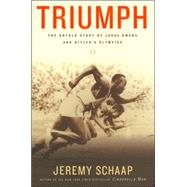
What is included with this book?
| Prologue | p. xi |
| A Day to Remember | p. 3 |
| Out of Alabama | p. 14 |
| Vincible | p. 31 |
| Heel Bones and a New Start | p. 55 |
| The Judge and the Millionaire | p. 63 |
| "We Are with You, Adolf" | p. 83 |
| A Blessing in Disguise | p. 98 |
| Jew Kills Nazi | p. 105 |
| A Friend and a Foe Felled | p. 112 |
| Olympic Trials | p. 122 |
| Olympia | p. 137 |
| The Belle of the Ball | p. 142 |
| The Battle Tent of Some Great Emperor | p. 150 |
| The Youth of the World | p. 159 |
| Day One | p. 172 |
| Day Two | p. 183 |
| Day Three | p. 196 |
| "He Flies Like the Hindenburg": Day Four | p. 213 |
| The Relay | p. 219 |
| Epilogue | p. 230 |
| Notes | p. 237 |
| Acknowledgments | p. 257 |
| Index | p. 261 |
| Table of Contents provided by Ingram. All Rights Reserved. |
The New copy of this book will include any supplemental materials advertised. Please check the title of the book to determine if it should include any access cards, study guides, lab manuals, CDs, etc.
The Used, Rental and eBook copies of this book are not guaranteed to include any supplemental materials. Typically, only the book itself is included. This is true even if the title states it includes any access cards, study guides, lab manuals, CDs, etc.